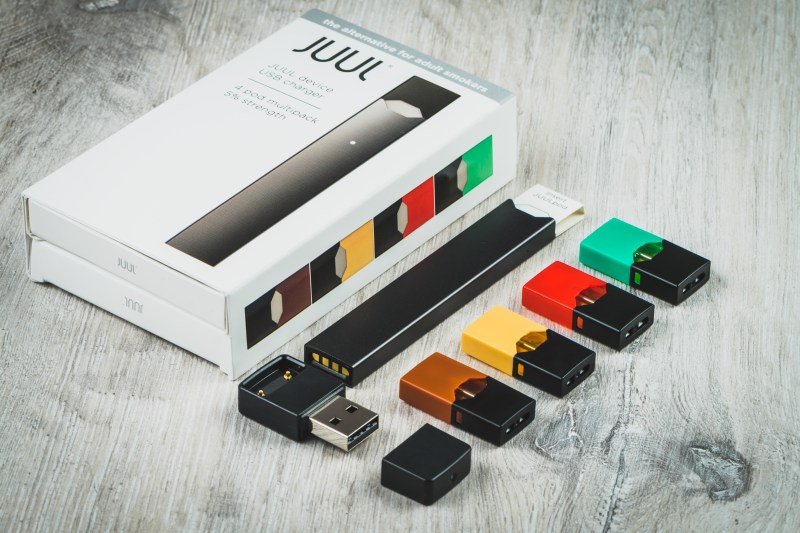Amidst rising concerns about the negative effects of vaping, several school districts have filed lawsuits against San Francisco-based Juul, a leading e-cigarette manufacturer, alleging that the company has endangered student well-being and drained school resources as administrators attempt to curtail students’ vape use.
The school districts in St. Charles, Missouri, Olathe, Kansas and Long Island, New York filed lawsuits earlier this month on Oct. 7, making them the first districts to take legal action against the popular vape producer. Since then, at least three other school districts in Kansas and four school districts in Arizona have voted to start litigation processes against the company, with more schools expected to file lawsuits in the coming months.
The New York lawsuit explains that “school districts have been uniquely and disproportionately impacted” by Juul’s conduct, adding that their educators are being “forced to expend significant resources” to combat Juul use by students.
The lawsuits come after an increase in reported cases of vaping-related illnesses. According to the Centers for Disease Control and Prevention (CDC), there have been 1,479 recorded lung injury cases related to the use of e-cigarettes in the U.S. to date. The CDC also reported that the number of middle school and high school students using e-cigarettes rose from 2.1 million students to 3.6 million — a more than 50% increase.
Juul is the most commonly used e-cigarette amongst adolescents, and has faced criticism for marketing its product towards youth. Given these factors, the U.S. Surgeon General has identified adolescent e-cigarette use as a public health concern, pointing to Juul’s especially high concentration of nicotine and the subsequent potential for user addiction.
Juul did not respond to requests for comment, but the company has previously denied that its advertising targets young adults, instead claiming to solely produce cigarette alternatives for adult smokers.
Small and sleek, Juuls are easy to hide, enabling usage to take place in classrooms around the country and moving what might have been an at-home issue into educators’ jurisdiction.
Stanford pediatrics professor Bonnie Halpern-Felsher, whose research focuses on adolescent nicotine use, has traveled to high schools around the U.S. as part of nicotine addiction prevention efforts. She said she has witnessed the resource drain cited in the lawsuits, encountering teachers “frantically” searching for solutions to the epidemic, and running low on the means needed to do so.
“Schools were being punitive at first, in that they were suspending or giving detentions for Juul use, but now schools are realizing that the students are actually addicted and need help,” Halpern-Felsher said. “So rather than being punitive, they’re turning to intervention and counseling. There was this moment of, ‘wow, we have a huge problem on our hands, we need to actually help our students.’”
Halpern-Felsher’s research on adolescent nicotine addiction prevention supports the non-punitive approach that schools are starting to adopt, but the continued intervention and prevention efforts require resources that many schools don’t have, such as specially trained counselors, nicotine education seminars and pay for teachers’ overtime.
“Schools have been telling me that they are spending 80 to 100 thousand dollars a year on this, which comes out of their primary budget,” Halpern-Felsher said. “They don’t have additional resources to combat Juul use.”
She added that beyond administrative strains, she has encountered many educators who were personally overwhelmed with the rise in teen vaping — an element that she believes underscores the magnitude of the issue.
“I had a teacher who said to me that he doesn’t want to go to the bathroom anymore because every time he walks in and catches a kid vaping, he has to spend the next hour or two calling the kid’s’ home, dealing with paperwork and helping the student,” Halpern-Felsher said.
The lawsuits are still in the early stages, but are expected to mirror past legal actions taken against tobacco, opioid and gun companies.
Contact Meghan Sullivan at meghans8 ‘at’ stanford.edu.
